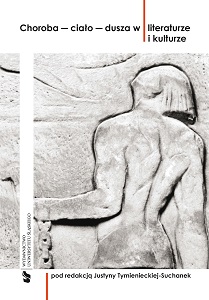Niewerbalny język szaleństwa w powieści Fratelli Carmelo Samonà
Nonverbal language of madness in the novel Fratelli of Carmelo Samonà
Author(s): Stefano Redaelli
Subject(s): Studies of Literature
Published by: Wydawnictwo Uniwersytetu Śląskiego
Summary/Abstract: Carmelo Samonà dedicated almost all his literary works, written between 1978 and 1990, in the period after the entry into force of Law 180 (Basaglia Law) which led to the closing down of psychiatric hospitals in Italy, to his experiences of living in the same house with a person suffering from a mental illness. Especially his novel Fratelli (Brothers) focuses on a close contact with insanity, outside the walls of psychiatric facilities. Insanity speaks a different language: the spoken one is reduced to some “parts of an evoked discourse”; the non‑verbal one is manifested by the body, through a game, a gift. The word — in its regression — is fragmented and fades away; gives way to archaic languages which encourage primary — emotive — communication that feeds on a wish to create a bond with another person. Writing is a tool used by Samonà to present insanity. Through cataloguing, describing and carefully organizing words, gestures and disorders of his ill brother, he reconstructs a detailed picture of insanity, identifies himself with a member of the family, copies his gestures and words and follows chaotic paths. Samonà balances on a blurred line of normality and insanity, health and illness. Writing constitutes a form of defence, a neurosis of perfection, an attempt to force the verbal chaos of insanity into a syntactic order, forming something normal out of abnormality. But writing fails here. And this is the most shocking feature of Samonà’s literary works: such a powerful and mastered tool as writing turns out to be improper. It has to be laid down, like arms, means of control and an attempt of normalisation. To communicate with insanity, the spoken language has to surrender, to go down, to remain in silence, silence which is a hermeneutic attitude focused on listening and a dimension open to accept difference. Other languages — nonverbal, affective — must be used here. And the word needs to be made flesh — an embrace which puts together everything that was crushed by the language — and needs to be made game, in order to experience states of mind impossible to be experienced through a spoken word.
Book: Choroba – ciało – dusza w literaturze i kulturze
- Page Range: 17-34
- Page Count: 18
- Publication Year: 2017
- Language: Polish
- Content File-PDF

